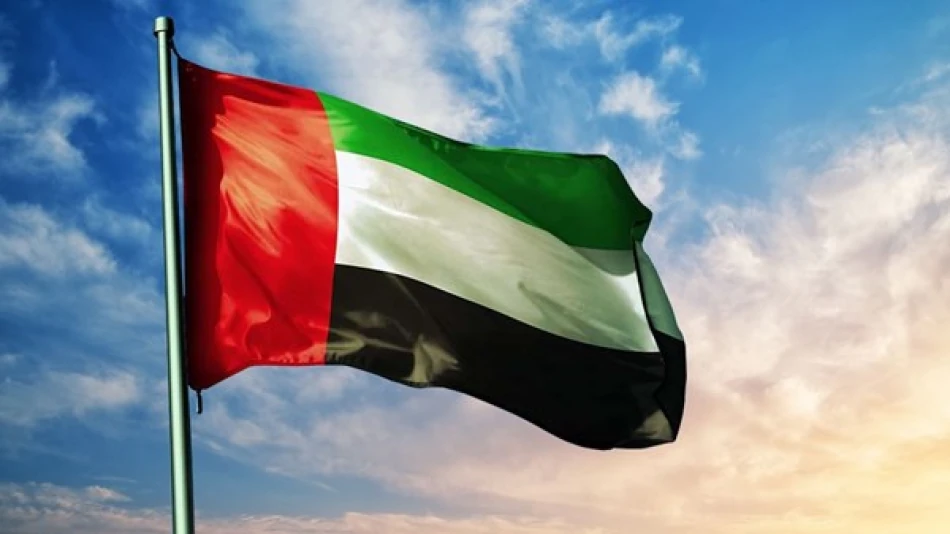
UAE Leads the Way in Building Smart, Sustainable Cities of the Future
UAE Emerges as Global Smart City Powerhouse, Outpacing Traditional Tech Hubs
The United Arab Emirates has transformed itself into one of the world's most advanced smart city ecosystems, with Dubai jumping from 12th to 4th place globally in 2025 smart city rankings while Abu Dhabi claimed 5th position. This dramatic rise reflects a calculated national strategy that goes beyond infrastructure upgrades to create digitally integrated urban environments that could redefine how cities operate in the coming decades.
The "Electricity 4.0" Revolution
The UAE's early adoption of what industry experts call "Electricity 4.0" – the convergence of electrical and digital transformation – has positioned the country ahead of climate and energy challenges that will define urban planning through 2050. This approach combines decentralized microgrids with AI-powered building management systems, creating cities that adapt in real-time to energy demands.
Frederick Goodmill, Executive Vice President of Energy Management at Schneider Electric, points to pilot projects demonstrating energy consumption reductions of up to 50% in individual buildings and 29% across large complexes. With Middle East electricity demand projected to surge 10% by 2030, the UAE's infrastructure investments of AED 752 million toward its Energy Strategy 2050 appear both timely and necessary.
Measurable Smart City Returns
The UAE and Saudi Arabia have committed approximately AED 185 billion to smart city projects as of 2025, focusing heavily on artificial intelligence, Internet of Things (IoT) deployment, data centers, and next-generation communication networks. Unlike many global smart city initiatives that struggle with integration, the UAE's approach creates unified digital experiences through platforms like UAE PASS digital identity and the u.ae unified portal.
Digital Government as Urban Infrastructure
Abu Dhabi's "Tamm" platform provides access to hundreds of government services, while Dubai's "Dubai Now" connects over 250 smart services across 35 government and private entities. This level of integration surpasses what most developed cities have achieved, creating a seamless interface between residents and urban systems.
Dr. Nidal Abu Zaki, Director General of Orient Planet Group and author of "Smart Cities in the Arab World," notes that this comprehensive digital identity framework accelerates IoT and AI implementation – core components that many cities struggle to deploy effectively.
Competitive Positioning Against Global Leaders
While the UAE shares data analytics approaches with cities like New York, it distinguishes itself through sustainable urban planning at scale. Unlike Amsterdam's focus on circular economy and renewable energy, the UAE's geographic scope and project breadth create momentum that smaller, more focused initiatives cannot match.
Investment and Market Implications
The UAE's smart city success creates several market opportunities and challenges for global players. Technology companies increasingly view the UAE as a testing ground for urban innovations before scaling to larger markets. The country's regulatory framework, which anticipates rather than reacts to technological change, provides a stable environment for long-term infrastructure investments.
For investors, the UAE model demonstrates that smart city development requires integrated approaches rather than piecemeal technology adoption. The measurable energy savings and operational efficiencies provide clear return-on-investment metrics that many smart city projects lack.
Regional and Global Influence
The UAE's rise in smart city rankings reflects broader shifts in global urban development. Traditional tech hubs face legacy infrastructure constraints that limit transformation speed, while purpose-built smart cities in the Gulf can implement comprehensive systems from the ground up.
This creates a new competitive dynamic where urban innovation leadership may shift toward regions with greater implementation flexibility and investment capacity. The UAE's success provides a replicable model for emerging economies seeking rapid urban modernization, potentially influencing smart city development across Asia, Africa, and Latin America in the coming decade.
Most Viewed News

 Layla Al Mansoori
Layla Al Mansoori






